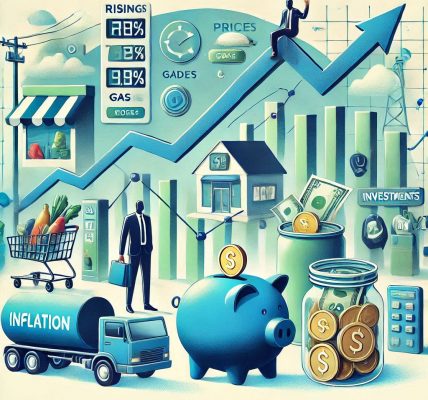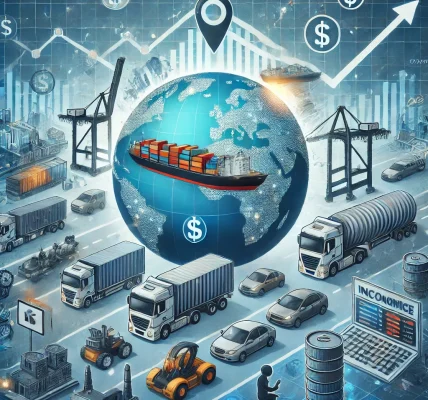Introduction
Emerging markets have become a driving force in the global economy. With rapid industrialization, technological advancements, and increasing consumer demand, these economies play a significant role in shaping global trade, investment trends, and economic policies. Countries like China, India, Brazil, and Indonesia are contributing significantly to global GDP growth and influencing economic decisions worldwide. In this blog, we will explore the role of emerging markets in shaping the future economy, the opportunities they present, and the challenges they face.
Understanding Emerging Markets
Emerging markets are economies transitioning from low-income to middle-income status, characterized by rapid economic growth, improving infrastructure, and increasing integration with global markets. Some key features of emerging markets include:
- High GDP Growth Rates: Many emerging economies grow faster than developed economies.
- Expanding Middle Class: Increased consumer spending boosts domestic and international markets.
- Technological Advancements: Digital transformation and innovation drive economic expansion.
- Foreign Direct Investment (FDI): Many multinational companies invest in emerging markets due to lower production costs and growing demand.
Key Factors Driving the Growth of Emerging Markets
1. Technological Innovation and Digital Transformation
Many emerging economies are investing in technology and digital infrastructure, leading to economic transformation. Mobile banking, e-commerce, and artificial intelligence (AI) are reshaping industries and improving financial inclusion.
2. Demographic Dividend
Emerging markets often have young and growing populations, providing a large workforce and increasing consumer demand. This demographic advantage fuels productivity and innovation.
3. Global Trade and Investment Opportunities
Emerging markets are increasingly involved in global trade and attracting foreign investments. Governments are implementing business-friendly policies to attract multinational corporations.
4. Infrastructure Development
Investments in transportation, energy, and communication infrastructure improve connectivity and economic efficiency, facilitating trade and industrial growth.
5. Shift Towards Green and Sustainable Development
Many emerging economies are focusing on renewable energy, sustainable agriculture, and green initiatives, aligning with global efforts to combat climate change.
Opportunities for the Global Economy
1. Diversification of Global Supply Chains
Emerging markets are becoming manufacturing hubs, reducing dependency on traditional production centers like the U.S. and Europe. This diversification enhances global supply chain resilience.
2. Expansion of Consumer Markets
A rising middle class in emerging economies leads to increased demand for goods and services, presenting opportunities for businesses to expand into new markets.
3. Investment Growth in Technology and Innovation
Emerging markets are home to innovative startups and digital enterprises, attracting venture capital and fostering technological advancements that benefit the global economy.
4. Strengthening Global Financial Markets
As emerging markets integrate with global financial systems, they contribute to economic stability and present new investment opportunities for international investors.
Challenges Facing Emerging Markets
1. Political and Economic Instability
Some emerging markets experience political uncertainties, corruption, and economic fluctuations, impacting business confidence and investment inflows.
2. Infrastructure Gaps
Despite progress, many emerging economies still struggle with inadequate infrastructure, leading to inefficiencies in transportation and logistics.
3. Regulatory and Policy Uncertainties
Frequent changes in government policies, taxation, and trade regulations can create risks for businesses and investors operating in emerging markets.
4. Income Inequality and Social Issues
Rapid economic growth sometimes leads to wealth disparities, requiring policies that promote inclusive economic development.
5. Environmental and Climate Risks
Emerging markets must balance economic growth with sustainability, managing climate-related challenges such as pollution, deforestation, and water scarcity.
Future Outlook for Emerging Markets
Emerging markets will continue playing a crucial role in shaping the future economy. Governments and businesses must focus on:
- Strengthening trade relations and international cooperation
- Investing in education and skill development for a competitive workforce
- Enhancing digital and financial inclusion
- Promoting sustainable and green economic practices
Conclusion
Emerging markets are transforming the global economic landscape. With rapid growth, technological advancements, and increasing consumer demand, they present immense opportunities for businesses, investors, and policymakers. However, challenges such as political instability, infrastructure gaps, and regulatory uncertainties must be addressed to ensure sustainable economic growth. By embracing innovation, fostering global trade, and implementing sound economic policies, emerging markets will continue shaping the future of the world economy.




